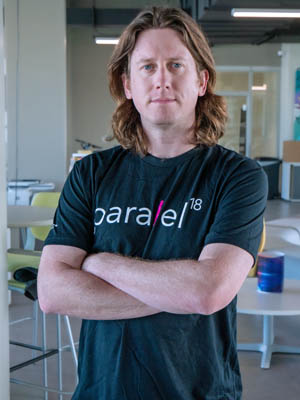50 years after Tobin, Puerto Rico’s next industrial revolution is digital

I’m new to Puerto Rico, but I studied economics in university back home in California — and I’ve been fascinated by the work of the Center for a New Economy, which recently marked the anniversary of the Tobin Report with its event “50 Years Since the Tobin Report on Puerto Rico.”
The discussion brought together leaders from both parties — Resident Commissioner Pablo José Hernández (PPD) and Secretary of Economic Development Sebastián Negrón Reichard (PNP) — a sign that Puerto Rico’s economic future still commands bipartisan reflection. We are fortunate to have a nonpartisan think tank like Grupo CNE to help inform, convene and guide those shaping the future of Puerto Rico’s economy.
Tobin and his colleagues warned in 1975 that Puerto Rico’s prosperity would depend on building domestic productivity — reducing dependence on external capital and developing the capacity to produce and own value locally. That insight still holds. But Tobin and his peers could not have imagined how technology would transform the ways domestic productivity grows. Building local strength today means competing — and contributing — on a global scale.
If Tobin were writing today, perhaps his call for domestic productivity would point squarely at startups. Fifty years ago, the kind of production Puerto Rico needed was only possible when a multinational invested millions to build a factory. Today, a small group of cofounders with laptops, AI tools and grit can build something that reaches the world.
At parallel18, we see those founders up close. They’re not waiting for policy miracles; they’re building globally competitive companies from here. When these ventures scale, their impact on GNP can far outpace their initial footprint. A few breakout companies can generate more locally retained value — ownership, wages, reinvestment — than most tax-incentivized plants ever did.
And unlike the factories of the past, homegrown startups can spread ownership. Typically, when they’re backed by venture capital, early employees, local investors and others hold equity. When exits happen (via acquisition or public listing), some of that wealth stays here — fueling a new cycle of founders and investors.
Over time, the people behind those successes — founders, early employees and local backers — gain the capital, experience and networks to launch new companies, invest in others and share what they’ve learned. That’s how a strong ecosystem compounds — when success recirculates rather than leaves.
Puerto Rico has many successful family-owned firms and multinational corporations, but few mechanisms that spread success beyond family members or global shareholders.
There’s encouraging progress. Raincoat, a disaster-insurance startup founded in Puerto Rico, has raised capital from global firms like Two Sigma, Anthemis, SoftBank, Morro Ventures and Rise of the Rest.
Nauta, a logistics startup, recently raised what may be the island’s largest seed round — $7 million led by D.C.-based Construct Capital. A Boricua-diaspora-led fund, Predictive, invested in their pre-seed round last year.
And Cultimar, an aquaculture company based in Arecibo, is scaling with international backing from Hatch Blue and local investment from the Popular Impact Fund. These aren’t stories of dependency on outside capital. They’re signs that Puerto Rican founders are building companies worth investing in.
Puerto Rico of the 20th century was about factories built with someone else’s money. The 21st century will be about companies built by Puerto Ricans who own what they create.

Jamie Rodota is the senior portfolio manager at parallel18, where he oversees investment activities, including P18 Ventures and the Venture Capital Access Program (VCAP). Since joining the team in 2024, he has worked with founders, co-investors and stakeholders to advance investments that strengthen Puerto Rico’s startup ecosystem.












